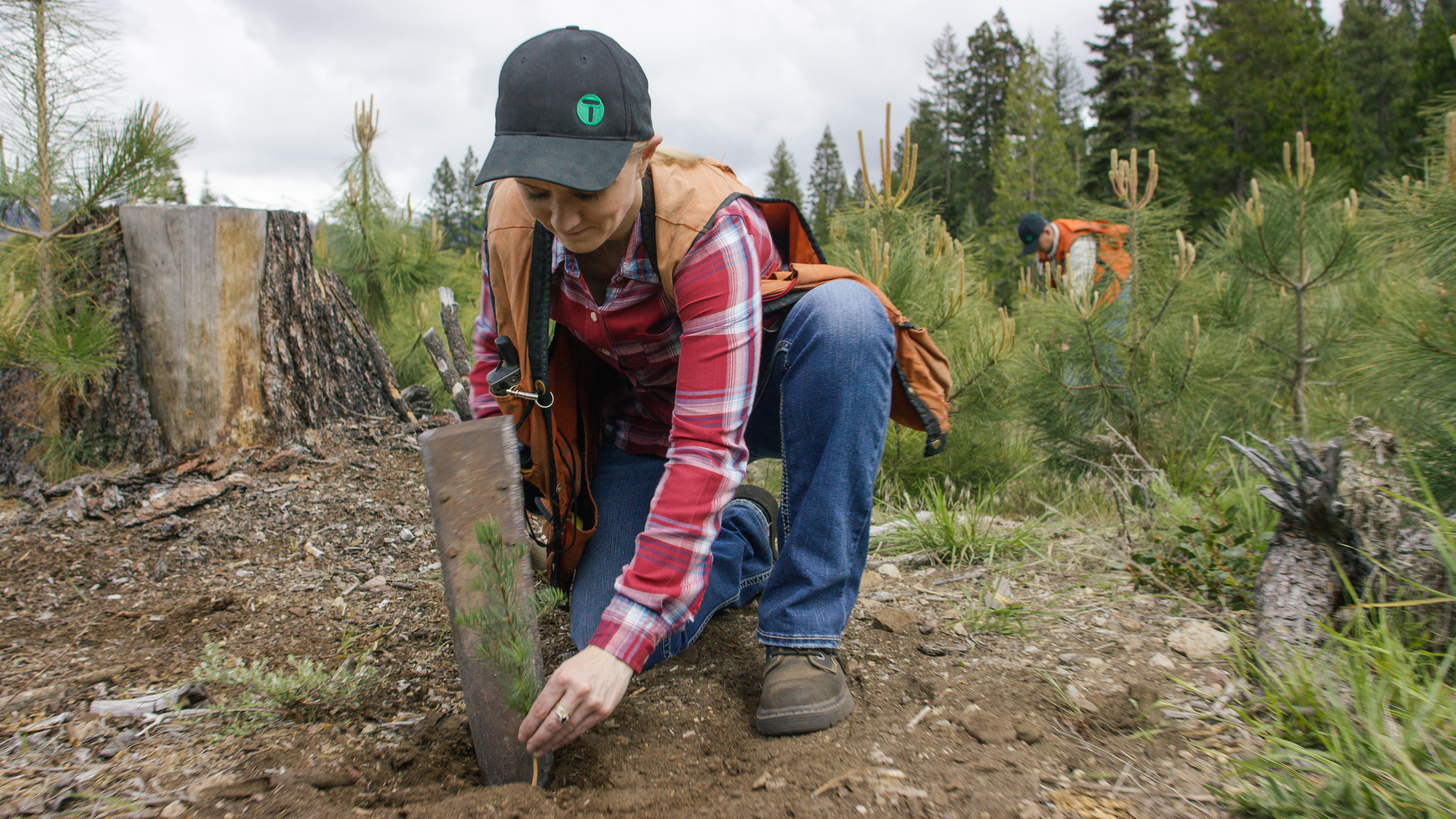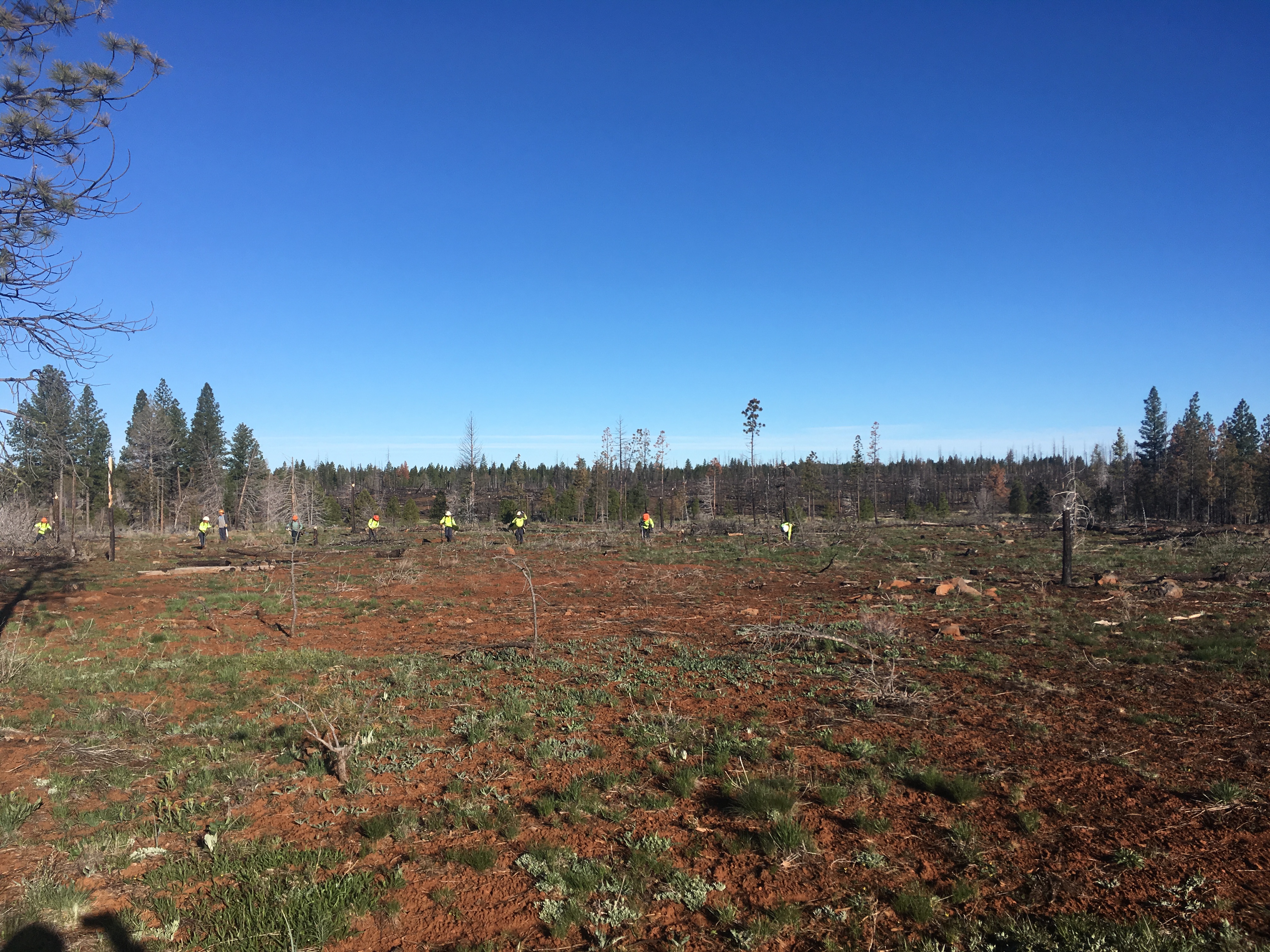
Forests are vital to our climate, water, and to rural economies. Pacific Forest Trust made substantial progress in 2017 toward our vision of ensuring that society values—and pays for—forests for all the benefits they provide. Partnering with our many stakeholders, we work in the radical middle to bring together urban and rural communities to conserve our shared forest resource and ensure a more sustainable forest future. Read the Pacific Forest Trust 2017 Annual Report.
Our Shared Future
In starting the Pacific Forest Trust, we envisioned a new kind of forest conservation, where the wild and working forests are interwoven in a whole landscape, and urban and rural communities work together to conserve our shared forest resource to sustain our shared future. We embrace the role of people in forests managing for all forest values, and we develop new sources of funding for the whole forest—complementing the timber it yields. We define success not by establishing set-asides and saying “no” to what we don’t want to happen in forests, but by saying “yes” to what we do want.
2017 was a year of great progress, building a stronger path to “yes” than ever before for forests. We saw new landmarks for forests in climate mitigation and adaptation; major new funding for forest stewardship and conservation; and substantial new forest conservation in both Oregon and California. All of the accomplishments in this annual report have been made possible by your steadfast support. We are deeply grateful for your commitment to working with us to protect and manage forests for all their benefits.
More than $220 million allocated to manage forests for climate benefits
Conserving and restoring forests and other lands is the natural solution to climate change. It helps in both mitigating and adapting to a changing climate, ensuring a safe planet for the future for people and wildlife alike. It’s also cost-effective: With only 4% of total climate funding in California, forest-based investments account for more than 14% of the greenhouse gas reductions achieved.
As of the end of 2017, there were more than 5,000,000 acres of forest across 28 states being managed for their climate benefits under California’s cap and trade program, participating in the forest offset program which PFT pioneered. That has reduced over 78 million metric tons of CO2 emissions—equivalent to taking 17 million cars off the road in 2017.
In California, our work led to the state establishing an initial and significant target for forest carbon reductions in the updated Scoping Plan, as well as directing hundreds of millions of dollars into investments in forest restoration and conservation for climate benefits. We helped pass AB 398 (Garcia) into law, extending the state’s successful cap and trade program to 2030. Our work was also key to establishing a new $20 million program for wildlife adaptation at the Wildlife Conservation Board. We also made real progress in advancing state efforts to modernize state fire policy and fire-related programs, securing new funding to help monitor air quality conditions in a more effective and timely fashion, which in turn enables more prescribed and managed fire in the right conditions. We also ensured increased funding for State Responsibility Area grants to local jurisdictions, which make communities more fire-safe through education, planning, and reducing fuels and other wildfire hazards.
Building on our deep experience in climate policy, PFT is working in Oregon and Washington to help evolve a shared regional response to climate change, especially through working with forest and rural communities to effectively engage them in climate change mitigation and adaptation efforts. Doing so is not only more effective, it also provides a stronger base for eventual national action. In Oregon, we worked with a variety of partners and the legislature to expand the role of forests in emerging climate policy. This approach will also sustain jobs in rural communities, cost-effectively reduce greenhouse gas emissions, and support climate change adaptation efforts.


Forests—and the people who manage and own these lands—are the key to successful climate adaptation and resilience. The 5,000+ acre PFT/Michigan-California Timber Company project at Black Butte was awarded more than $4 million through a California Climate Investment grant from CAL FIRE for our Mt. Shasta Headwaters Forest Health and Resilience Project. Find out more. Photos: Cindy Diaz (above); MCTC (below).
More than 700 species of wildlife now have safer homes on PFT-protected lands
Development and climate change are significantly altering our natural world, destroying or degrading wildlife and fish habitats. PFT’s work protects these habitats and enables safe passage to new habitats for the rich and myriad wildlife that call this region home.
After five years of persistence, determination, and collaboration, the 2,100 acre Mountcrest Working Forest was permanently conserved in 2017 with more than $3 million dollars raised in both public and private grants for the project. Owned by the Parsons family for nearly 100 years, Mountcrest sits on the historic Siskiyou Pass and forms a wildlife bridge between the Rogue River Siskiyou National Forest and the Cascade Siskiyou National Monument. The project marks the first time Oregon has funded a conservation easement held by a nonprofit land trust, and where an easement was funded to protect endangered species on a working forest. Read more here.
Our McCloud Soda Springs Working Forest project received big boosts from the California Department of Fish and Wildlife, with a $500,000 grant in 2017 towards its conservation (followed by a $590,000 grant through the Wildlife Conservation Board in 2018). The 1,400 acre property is home for a wide variety of native wildlife: beavers, black bears, deer, mountain lions, willow flycatchers, northern goshawks, and rainbow trout among them. This partnership with Schroll Timberlands, LLC, is planned to complete in the summer of 2018, and will restore an older, more complex forest and wet meadow system, conserve the renowned Soda Spring, protect rare habitats, and sustainably produce wood products.

PFT and Collins, working in partnership with the California Department of Fish and Wildlife and others, completed our reforestation project at the Goose Lake Working Forest. The planting of three million ponderosa pine seedlings will transform a charred landscape into a new forest that will provide countless benefits for future generations. Find out more. Photo: Lee Fledderjohann / Collins
Planning the protection of 7 million acres: California’s key water source
Forest watersheds are the essential natural infrastructure providing cool, clean water for people, fish, and wildlife.
More than 28 million Californians get their water from the seven million acres of forest in five key watersheds that feed the Shasta, Trinity, and Oroville reservoirs. These watersheds are the core of the state’s utilized water supply, but they are significantly at risk, degraded by past management patterns, development, and now climate change.
Building on the success of AB 2480 (Bloom), which incorporated source watersheds in California’s water system infrastructure, we worked with a broad range of scientists and forest managers to complete the first comprehensive assessment of the condition of these watersheds. In A Risk Assessment of California’s Key Source Watershed Infrastructure, we outline a cost-effective and enduring framework for restoring and maintaining their resilient function. Read more here.
This is a new, climate-smart approach to water security—undertaking restoration at the landscape scale, rather than project by project. It is essential to increasing water yields, storage, and quality for the future, and is the missing and complementary approach to the traditional focus on simply building more dams and other built infrastructure. In addition, throughout 2017, PFT worked with a variety of stakeholders and partners—from the academic community, to land managers, to NGO partners to the agencies who permit forest management—to help develop a practical framework to facilitate the needed repair and maintenance of these watersheds. Find out more.

Photo: Mike Hupp
